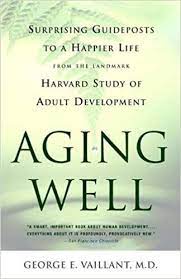Have you felt mistreated by your loved ones sometimes? I have.
Let’s learn how to cope with it both in private and business life and aging well.
Table of Contents
Action: Forgive and Move On.
3 Key Concepts
- Forgive and move on: We are all in the progress of becoming.
- Human development models: social model and emotional model
- Learn 6 stages of successful adult development
Aging Well: How to Forgive and Move On?
Understand that “Honesty” is a virtue – Free of deceit, truthful, and sincere. One is not born with it. It is a character, and you shall not expect to get it from anyone. Finding somebody with such a moral trait should be like a gift.
Henceforth, be prepared to get backstabbed. It will happen, don’t expect anything less. It is our task to rely on ourselves for basic needs and be satisfied with that. So that no one can take anything away from you that you cannot move on from them.
Forgive the wrongdoer. You have given them trust; it is a test for them. They failed; now, let them go. Forgiveness is crucial because we need it to move on our way too.
This book will give empirical human development findings. With a better understanding of human development, we shall see flaws in humanity: good and bad. Ultimately, it helps us forgive ourselves and others.

Human Development Model
1. Social model of developmental stages
With this model, adult development is characterized by a progressive sequence of changes in which adults continue to participate in life within an ever-increasing social circle. See 6 stages below.
2. Emotional model of adaptational mechanisms of defense
These defense mechanisms (from immature to mature) allow the person varying degrees of ability to tolerate or hold strong emotion in consciousness.
Happy families, like bank accounts left to compound interest, build on themselves.
George E. Vaillant
6 Adult Development Stages
1- Identity
A sense of one’s own self separate from family of origin.
2- Intimacy
The task of living with another person in an interdependent, reciprocal, committed, and contented fashion for a decade or more.
3- Career Consolidation
Expanding one’s personal identity to assume a social identity within the world of work (this includes homemaking).
4- Generativity
Demonstrating a capacity to unselfishly guide the next generation (without parenting them; involves giving up control of outcomes).
5- Keeper of the Meaning
Similar to Generativity but less related to individuals and more to broader society. The focus is on conserving and preserving “the collective products of mankind – the culture in which one lives and its institutions.” Concern for a social radius extending beyond one’s immediate community.
6- Integrity
Acceptance of oneself in existence; the wisdom of one’s place in the larger scheme of things, of one’s uniqueness, of where one fits in the cosmic order; acceptance of mortality.
Reference: https://anyshinything.com/agingwell/the-6-stages-of-adulthood
To sum up
Aging well: it can be done. Dr. Vaillant suggests
Successful aging means giving to others joyously whenever one is able; receiving from others, gratefully, whenever one needs it; and being capable of personal development in between.
To accomplish this, one must employ the social model of developmental stages and the emotional model of adaptational defense mechanisms.
He shows why a person’s background has less to do with their eventual happiness than specific lifestyle choices. And he offers step-by-step advice about how each of us can change our lifestyles and age successfully.

The paradox of life is that the past may predict but never determines old age: life can be disturbingly wonderful.
George E. Vaillant
So we have learned a few ways to cope with mistrust in private and business life. Let live.
Get this book on Amazon here!

